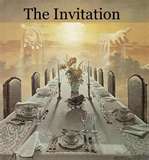"But what is a myth? If we take, for example, the Babylonian creation myth Enuma Elish, found in a 600 BC library, we find the following elements:
History, on the other hand, or to be more specific, the language of history is matter of fact and uses a recognisable style.
It is unified.
You can’t invent real history.
You can create a myth based on history.
Unknown to most people, history has to happen before myth can arise.
Those who create myths usually have to know or experience
(a) what usually happens, or
(b) what truly did happen on a specific occasion.
Only then are they in a position to fantasise on the details and turn history into myth.
If ordinary people obtain a copy of Enuma Elish, they will not automatically connect it with any reading they have done in Genesis. Only academics do things like that. Genesis 1 to 11 in contrast to Enuma Elish is matter-of-fact, and is unified. It was this unified composition of Genesis that was attacked in the 19th century in order to try to establish that Genesis was a myth.
How do we know that Genesis is linguistically unified? A comparison of Dickens’ Tale of Two Cities, chapters 1 and 2 with Genesis 1 to 2:3 and 2:4 to 4.25 shows that Genesis is more uniform than Dickens. How do linguists decide this? Quite easily. The results are obtained by totaling up what English teachers call the ‘content’ words. These are words such as earth, road, create, and lay, which do one of the following:
Scripture contains humour, parable and fable (Judges 9:7-15) but not myth in either the scholastic or popular sense. Confusing myth with truth only serves the purpose of leading men astray. After all, ‘In the beginning’ is far more specific than ‘Once upon a time’!" CMI
- The gods were created from water and earth.
- Water and chaos were at the origin of everything.
- The gods rebelled against their leaders.
- The gods fought each other as equals.
- A man-like god carved up a goddess to form part of the universe from her dead body.
- Man was created from the blood of another god.
multiple
heroes,
no one in supreme control,
unpunished violence
and illicit sex
amongst gods and between gods and men,
inanimate and created beings as
gods,
and the stories or myths themselves were the invention of both men
and gods rather than revelation from one God to mankind.History, on the other hand, or to be more specific, the language of history is matter of fact and uses a recognisable style.
It is unified.
You can’t invent real history.
You can create a myth based on history.
Unknown to most people, history has to happen before myth can arise.
Those who create myths usually have to know or experience
(a) what usually happens, or
(b) what truly did happen on a specific occasion.
Only then are they in a position to fantasise on the details and turn history into myth.
It is relatively easy to take true history
and turn it into false myth,
but it is not so easy to extract suspected truth
out of any popular
myth.
If ordinary people obtain a copy of Enuma Elish, they will not automatically connect it with any reading they have done in Genesis. Only academics do things like that. Genesis 1 to 11 in contrast to Enuma Elish is matter-of-fact, and is unified. It was this unified composition of Genesis that was attacked in the 19th century in order to try to establish that Genesis was a myth.
How do we know that Genesis is linguistically unified? A comparison of Dickens’ Tale of Two Cities, chapters 1 and 2 with Genesis 1 to 2:3 and 2:4 to 4.25 shows that Genesis is more uniform than Dickens. How do linguists decide this? Quite easily. The results are obtained by totaling up what English teachers call the ‘content’ words. These are words such as earth, road, create, and lay, which do one of the following:
- represent a picturable thing, person or action,
- summarise a quality,
- indicate a manner of doing something. After these are totalled, the amount of repetition in each section is calculated by counting the number of times content words are repeated. The number of repeated words is then expressed as a percentage of the total number of content words. In Genesis chapters 1 to 2:3, the repetition is around about 62.7 percent. In Dickens chapter 1, it is 23.4 percent. In the second section, Genesis 2:4 to 4:25, the repetition is 74.3 percent. In Dickens’ chapter 2a, repetition is 63.2 percent. What does all that mean? Simply that the first section of Genesis shows nearly three times the repetition of content words when it is compared with Dickens’ chapter 1. The second section of Genesis likewise shows greater use of repetition than Dickens’ chapter 2. In other words, Genesis uses an economy of style characteristic of the ordered presentation of fact rather than being a rambling discourse.
Scripture contains humour, parable and fable (Judges 9:7-15) but not myth in either the scholastic or popular sense. Confusing myth with truth only serves the purpose of leading men astray. After all, ‘In the beginning’ is far more specific than ‘Once upon a time’!" CMI
In the beginning God created the heaven and the earth.
Genesis 1:1

